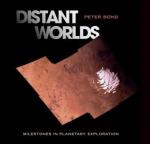|
This section contains 1,336 words (approx. 5 pages at 300 words per page) |

|
The exploration of space has been of interest to people since Nicholas Copernicus (1473-1543) and Galileo Galilei (1564-1642) discovered and described the true nature of the solar system. About 100 years ago, Russian Konstantin Tsiolkovsky (1857-1935) was the first scientist to describe the modern concepts of rocket engines and space travel. Tsiolkovsky, who wrote books about space travel, stated: "Earth is the cradle of humanity, but one cannot remain in the cradle forever."
In 1957 the Soviet Union surprised everyone by launching the world's first satellite, Sputnik. Only four years later, American amateur radio operators (hams) built and launched the world's first volunteer-and citizen-built satellite, Oscar I. Oscar I weighed about 3.7 kilograms (10 pounds) and transmitted the word "Hi" in Morse code as it orbited Earth.
Government-Backed Exploration
In the beginning, national space programs were exclusively military. While Robert H. Goddard (1882-1945) was experimenting with small and unsuccessful rockets...
|
This section contains 1,336 words (approx. 5 pages at 300 words per page) |

|


